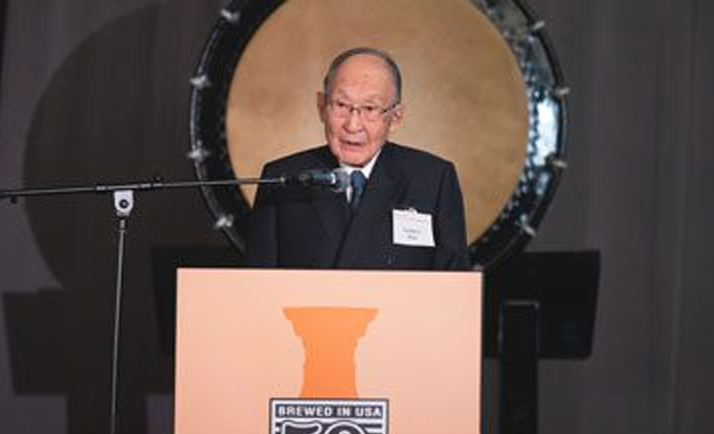State adds to Kikkoman’s soy sauce success
Japanese firm marks 50 years in Wisconsin
A company that produced the official soy sauce of Japan’s imperial household has grown globally to become one of the world’s best known and most sought-after flavors spanning a variety of cuisines.
It’s a long-running story in which Wisconsin has played a significant role for the past half-century.
Formed in 1917 as the Noda Shoyu Co. Ltd. through the merger of eight Japanese family companies—with a history dating back more than 350 years—the firm that became Kikkoman combined deep-seated traditions born centuries earlier with a sense of innovation and an eventual eye toward a global marketplace.
As it began marketing overseas, Kikkoman encouraged the use of soy sauce alongside local ingredients—a move that married soy sauce with local cuisines, widening its use and appeal.
A growing marketplace
The strategy worked. Kikkoman entered the U.S. marketplace in 1957, setting up a San Francisco sales and marketing company. The prior year, newspaper advertisements in the San Francisco Chronicle introduced the sauce as an “All-Purpose Seasoning.”
But it wasn’t until 1972 that Kikkoman selected the small community of Walworth as the site of its first U.S. production plant. Kikkoman sought a central location to ensure efficient distribution, with a good water source and a hard-working and loyal workforce. Wisconsin had all of those things—plus, the region also produces soybeans and wheat, two of the sauce’s main ingredients. The plant began shipping its first “Made in the U.S.A.” Kikkoman Soy Sauce in 1973. Its vigorous marketing campaigns resulted in increased sales and, consequently, steadily rising production capacity.
Today, the plant—constructed on a Walworth County farm field—produces 30 times more product annually than when it opened. That growth has made it the highest-producing soy sauce facility in the world.
A lasting, productive international relationship
Fifty years later, soy sauce is a staple in almost half of U.S. households. And Kikkoman Soy Sauce is shipped to more than 100 nations worldwide.

Wisconsin Governor Tony Evers presented a plaque honoring Kikkoman’s 50th anniversary in Wisconsin to Yuzaburo Mogi, the company’s honorary CEO and chairman.
To mark Kikkoman’s success, Governor Tony Evers proclaimed June 9, 2023, as Kikkoman Day in Wisconsin, and he and nearly 700 others celebrated the golden anniversary of the Wisconsin plant at an event in Lake Geneva.
“Kikkoman is pleased to invest in a state that has become a second home to our company,” said Yuzaburo Mogi, honorary CEO and chairman of the Kikkoman Corp. “We believe that for a company to thrive over the long run, co-existence and co-prosperity with society, and especially the local community, are essential.”
Because of that deep commitment, Mogi announced a $5 million donation to the University of Wisconsin to support sustainable agriculture and freshwater research. Of that amount, $3 million will go to the UW-Madison College of Agricultural and Life Sciences and $2 million will go to UW-Milwaukee’s School of Freshwater Science to fund research.

Mogi addressed the dinner audience at the anniversary celebration.
“I want to profess my profound gratitude for the people of Wisconsin, whose partnership and support have made every accomplishment over the years possible,” Mogi said. “We’re looking forward to the next 50 years of friendship and continued growth in our pursuit to make Kikkoman Soy Sauce a truly global seasoning.”
Speaking to reporters at the celebration, Mogi added: “When we set up in Walworth in the early 1970s, we took a risk and made a huge investment. And time has shown that risk paid off.”


